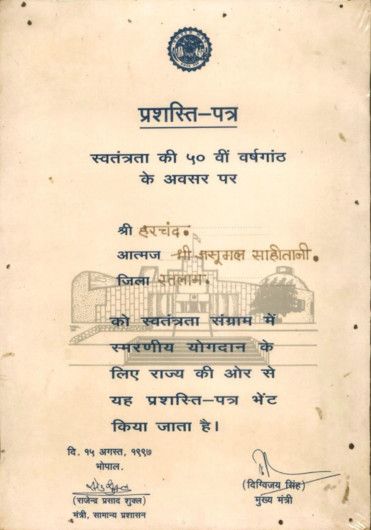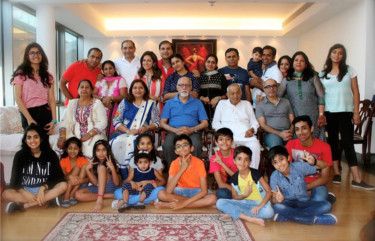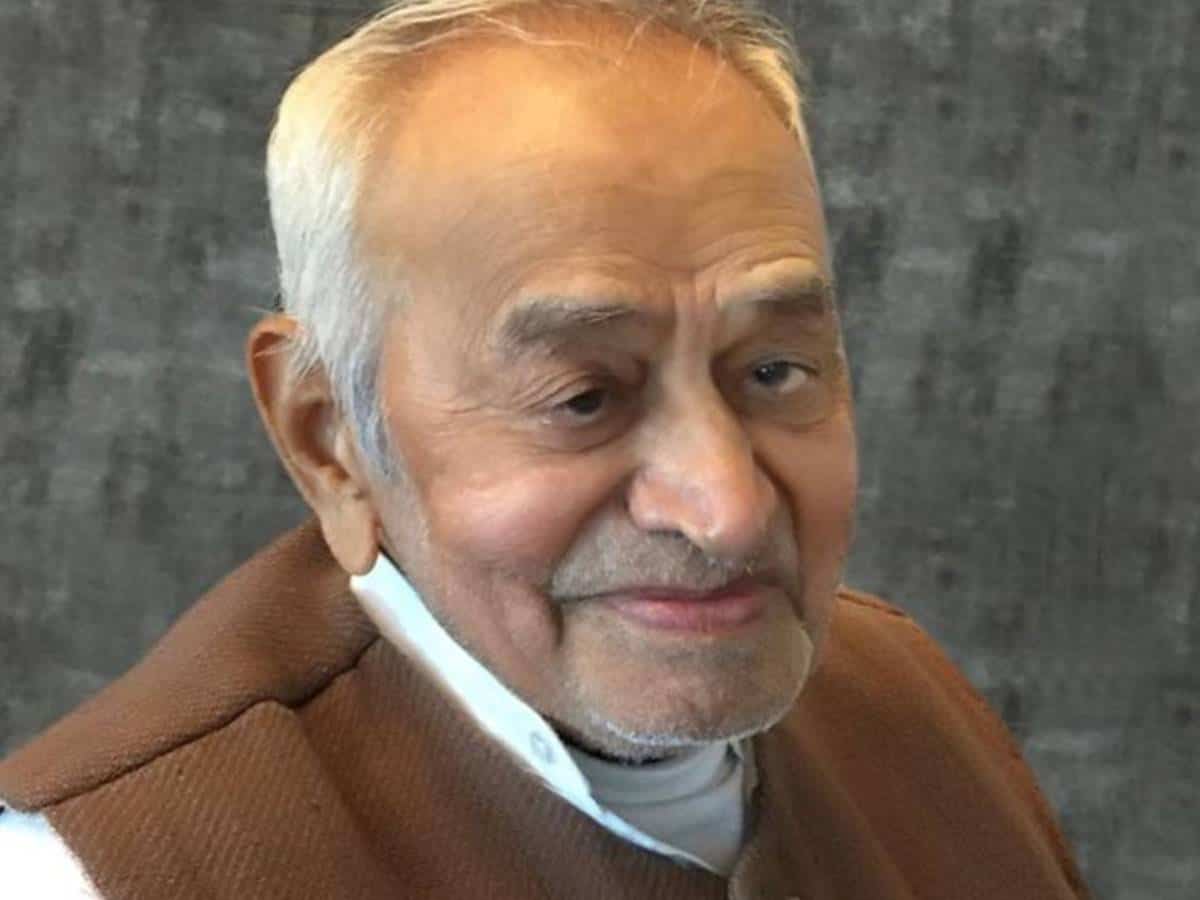Dubai: Harichandrai Jasumal Sahityani, a 98-year-old Indian freedom fighter, passed away in Dubai on Thursday, where he had lived with his grandchildren since 2008.
Harichandrai was born in 1923 in the village of Kambleema in Sindh, undivided India, his two grandsons Vinod and Vimal Sahityani told Gulf News.
The cremation of Harichandrai will be held in Jebel Ali on Friday.
Gulf News could not confirm Harichandrai participation in the independence struggle. However, the family has a certificate acknowledging Harichandrai as a freedom fighter by the government of Madhya Pradesh in 1997. They also has photos and videos of villagers honoring him during India’s Independence Day celebrations.

The grandsons of Harichandrai run Duke International in Jebel Ali Free Zone, which supplies structural steel and building material in the region.
Since their grandfather did not remember the exact date of his birth, the family celebrated his birthday every January 1, said the brothers, who grew up together with their cousins Naresh, Prem and Bharat, hearing that their grandfather took part in the freedom struggle in India.

Vinod, who documented his grandfather’s life as part of his project and compiled stories about the partition of India, said he learned more about his grandfather after interviewing for the project which they recorded in the video.
Vinod said, “Although I could not find the full story of his entire life, I was able to record stories related to his childhood and freedom struggle and some important milestones in his life.”
Harichandrai lost his father six months after being born the youngest of five children. Apparently, He lost his sight in his right eye when he was six or seven years old after being pushed into a well by a mischievous child. The villagers saved him. However, the pulley injured his head, causing him to lose sight in his right eye. He remembered being bitten by a snake in later years, but fortunately escaped death.
“Harichandrai mother used to sew Sindhi hats with gold zari and sell them. She died when he was ten or 11 years old. Since his elder brothers were unable to pay, he went to Nawabshah alone at the age of 12 to study English,” said Vinod.

He initially made a living by selling newspapers for a penny per copy, as well as making and selling kites. Later, his high school principal helped him by forcing him to take a book-bound job in the school library. Compensation from this work gave him enough money to live comfortably.
Harichandrai organized speeches and celebrations on the occasion of the birthday of the leaders of the freedom movement at his school and carried out activities.
Vinod added, “After taking part in revolutionary activities against the British government, he was arrested by British soldiers and sent to jail on several occasions.”
During the Quit India Movement, 1942, Harichandrai came in contact with Hemu Kalani, who was imprisoned and hanged for trying to derail a British military train coming from Lahore. Authorities arrested Harichandrai along with 11 others on suspicion of conspiring with Kalani, Vinod said. “Because Hemo did not name any of his comrades, the group of 12 was flogged and sent to prison.”
After his release from jail, Vinod said, his grandfather completed his matriculation. After that, he would tutor the students of his village.
During the Partition violence, the Sahityani family managed to escape by train from Nawabshah to the Indian border and lived in various refugee camps.
Until his retirement in 1984, Harichandrai worked with the Telecom Department as a Telephone Engineer.
“After retirement, he used his savings to set up one or two schools for tribal students in the border areas. He oversaw the projects even after our grandmother died,” said Vinod.
The grandchildren now aim to carry on their grandfather’s legacy.
Vimal said his grandfather was a man of principle and discipline. “He practised a lifestyle based on yoga, meditation and Ayurveda. We believe that was the secret of his good health.”

